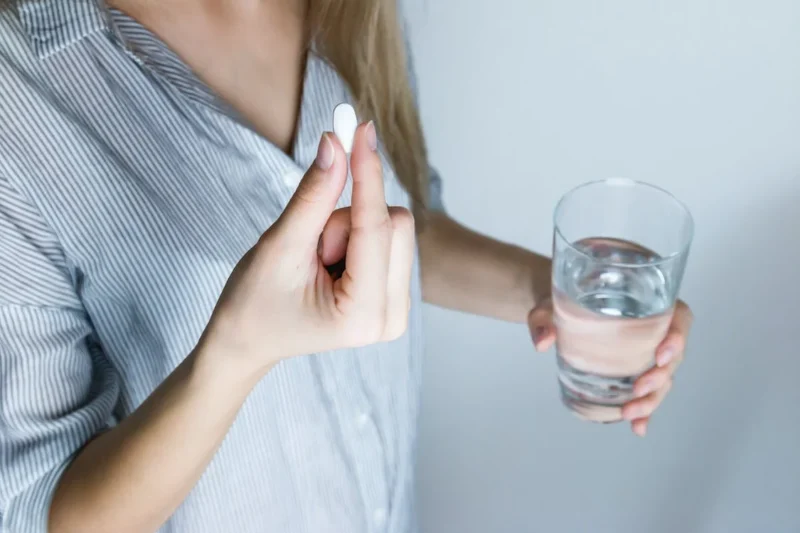Dehydration headaches are a well-known and often debilitating symptom of dehydration. They can happen when the body loses more water than it can replenish, leading to an imbalance of fluids in the brain. In this blog post, we will explore what dehydration headache feels like, discuss the types of headaches, and provide some tips on how to prevent them from happening. We hope that by reading this, you will be better equipped to recognize and deal with this pesky symptom.
Dehydration Headache: What It Is
They can occur when your body doesn’t have enough fluids. This can happen if you’re not drinking enough water, if you’re sweating a lot, or if you have an illness that causes your body to lose fluids. They usually happen on one side of the head and they can be mild or very severe. They often feel like pressure in the head or a headache that’s made worse by moving your head
What are the Symptoms?

This type of headache is often caused by dehydration. Symptoms may include:
- A headache that gets worse with exercise or with raising your head
- Nausea and vomiting
- Dry mouth
- A strong, throbbing pain on one side of the head, usually near the temples or behind the eyes
- Extreme thirst
- Dry skin
- Dry, sticky mouth
- Dark-colored urine or low urine output
- Muscle cramps
- Heat cramps
- Feeling faint or dizzy
- Low blood pressure
- Fatigue
How long do Symptoms Last?
The pain can range from mild to intense and can be accompanied by nausea, vomiting, and lightheadedness. Dehydration headaches typically develop within 12 hours of decreasing water intake and can persist for up to three days. However, many people experience only brief episodes and do not need treatment. While there is no specific cure for them, drinking plenty of fluids and resting as needed are the best ways to relieve symptoms.
How Can You Treat Them?

To treat them, drink plenty of fluids and electrolytes (sodium, potassium, chloride) throughout the day. If you have a headache that’s caused by dehydration, drink plenty of fluids to replace lost minerals and water. Avoid caffeine, alcohol, and spicy foods because they all worsen the situation. And if your headache is severe or lasts for more than a few hours, seek a specialist.
There are a few things that a specialist can do to help relieve the pain. The most common treatment is intravenous fluids and electrolytes, which help restore balance to the body’s fluid levels. Anti-inflammatory medication may also be prescribed to reduce inflammation in the head and neck area.
If you’re exploring different ways to manage pain and improve well-being, options like NAD IV therapy in Chicago might be worth considering, as they offer a holistic approach that some individuals find beneficial
What to Do If You Get Headaches Frequently

If you get headaches frequently, there are a few things you can do to try and alleviate the pain. First, see your doctor to rule out any underlying issues. Headache medication can also help relieve some of the pain. If that doesn’t work, try some of these steps:
-Take ibuprofen or another over-the-counter headache medication regularly. This will help reduce the frequency and severity of headaches.
-Drink plenty of fluids to keep your body hydrated and avoid constipation, which can lead to headaches.
-Avoid caffeine and alcohol, as they both can aggravate headaches.
-Get enough sleep – insufficient sleep is one of the most common causes of headaches. Make sure to schedule regular naps if needed to get enough restful sleep.
Prevention Tips

Prevention of dehydration headaches begins by ensuring that the person is drinking enough fluids and avoiding areas where they are likely to lose fluids (such as during exercise). If symptoms do develop, drinking cool liquids such as water or fruit juice will help relieve the pain. Ibuprofen or acetaminophen may also be effective in relieving pain. If dehydration is severe, medical attention may be required.
Also, avoid hot and spicy foods and beverages if you’re feeling headachey from dehydration. These foods can cause your body to release more fluid in an effort to cool down.
How do I know if my headache is from dehydration?
If you are experiencing a headache and believe it may be related to dehydration, here are some things to consider:
- The headache generally worsens with dehydration and can last up to 72 hours after rehydration.
- Headache is often accompanied by nausea, excessive thirst, and fatigue.
- A fever may also be present in individuals with dehydration-related headaches.
If you are experiencing any of these symptoms, it is important to seek medical attention as soon as possible. A doctor can help diagnose your condition and provide the appropriate treatment.
Foods that Help Relieve the Pain

Eat cucumbers. Cucumbers are a good source of hydration and contain anti-inflammatory properties which can help reduce the pain. Some people also find that eating cucumbers helps to speed up the reclamation process after suffering from a dehydration headache.
Eat bananas. Bananas are another good source of hydration and contain potassium which can help improve nerve function and reduce inflammation. Additionally, bananas are high in fiber which can help keep you feeling full longer so you don’t overeat or drink too much fluids in an attempt to alleviate your pain.
Grapefruit: Grapefruit is another fruit that’s packed with nutrients that can help relieve symptoms of dehydration such as headache and neck pain. One study found that grapefruit extract was effective in reducing brain swelling in patients with mild traumatic brain injury (MTBI). Additionally, grapefruit contains pectin, which has anti-inflammatory properties.
Cranberry Juice: Cranberry juice is packed full of antioxidants, including quercetin, which has been shown to help relief symptoms of dehydration such as headache and neck pain. It’s also high in vitamin C, which helps fight against cell damage and inflammation.
Conclusion
Dehydration can cause your brain and other organs to work harder than they should, leading to pain and inflammation. Make sure you drink plenty of fluids (including water, unsweetened tea, broth, vegetable juice and sports drinks). And as always, consult your doctor if the headache persists or worsens.

